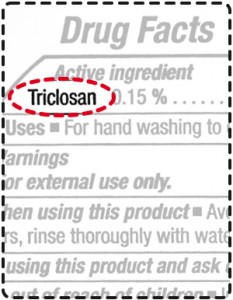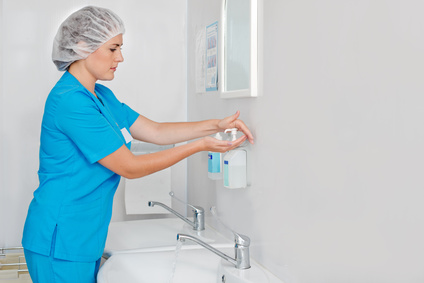by
Stepy —
August 26, 2014
- Healthy living is also about being educated on the latest health news so you can take steps to keep you and your loved ones safe.
- Do you still reach for hand soaps labeled “antibacterial”? Think again.
- The Food and Drug Administration (FDA) has proposed a new rule, requiring antibacterial soap and body wash manufacturers to prove that the products they make are more effective than just plain soap and water.
- Not only will they have to prove their effectiveness, but will also have to show that their products are safe for long-term use.
- “Millions of Americans use antibacterial hand soap and body wash products,” the FDA said in a statement.
- “Although consumers generally view these products as effective tools to help prevent the spread of germs, there is currently no evidence that they are any more effective at preventing illness than washing with plain soap and water. Further, some data suggest that long-term exposure to certain active ingredients used in antibacterial products — for example, triclosan (liquid soaps) and triclocarban (bar soaps) — could pose health risks, such as bacterial resistance or hormonal effects.”
- We have seen how triclosan may pose health risks to pregnant women and fetuses.
- While the FDA takes a closer look at triclosan, researchers from UC San Francisco are reporting that hand washing with antibacterial soap exposes hospital employees to potentially dangerous levels of triclosan.
- In the study, which was published in the Journal of Occupational and Environmental Medicine, the research team analyzed urine samples from two groups of 38 doctors and nurses. Three-fourths of them were women, and were at two separate hospitals, which were named Hospital 1 and Hospital 2 for the purposes of the study. Hospital 1 used antibacterial soap containing .3 percent triclosan to wash their hands, while Hospital 2 used regular soap and water.
- The results showed that Hospital 1 employees had significantly higher levels of triclosan in their urine than Hospital 2 workers.
- The scientists also surveyed the employees, asking them if they used toothpaste with triclosan. While those who did had higher triclosan levels, the researchers noted that antibacterial soaps had a stronger effect than toothpaste on the increase of triclosan levels in the urine.
- “Antimicrobial soaps can carry unknown risks, and triclosan is of particular concern,” explained Paul Blanc, MD, one of the leads in the study and a professor of medicine at UCSF who holds the Endowed Chair in Occupational and Environmental Medicine. “Our study shows that people absorb this chemical at work and at home, depending on the products that they use,” Blanc added.
- “If non-triclosan-containing soaps are available, use the alternative. This is based on the precautionary principle — that is, if you don’t know for certain that something is unsafe, it’s better to err on the side of caution,” Blanc recommends.
- “It should not be up to the individual to inspect every product for triclosan. Instead, it’s the duty of the FDA to carry out a review of this chemical and, if indicated, get it off the market,” Blanc adds.
- Blanc also notes to replace antibacterial soap products with plain soap.
- Some big companies like Procter & Gamble and Johnson & Johnson have announced that they will discontinue use of triclosan in some products.
- We are happy to report that the FDA and the Environmental Protection Agency (EPA) have been closely collaborating on science and regulatory issues related to triclosan. This will greatly help to ensure government-wide consistency in the regulation of the chemical.
- We encourage you to take a healthy living step and avoid products that contain triclosan and triclocarban.
- This is how it is listed. Courtesy of FDA.

- Note: None of the information in our website is intended to diagnose, treat, cure or prevent any illness or disease. The content on our website is for educational purposes only.
-
- DON’T FORGET to sign up for our weekly newsletter to get our latest articles, updates, free recipes and giveaways.
-
- FDA to take a closer look at antibacterial soaps.
- For more on EPA’s most recent assessment of triclosan.
- Antibacterial soaps pose potential risks to pregnant women and fetuses.
- For a DIY geranium hand wash soap.
- For DIY green fabric softeners.
-
- REFERENCES:
- 1. “FDA Taking Closer Look at ‘Antibacterial’ Soap.” U.S. Food and Drug Administration. N.p., n.d. Web. 25 Aug. 2014.
- 2. “Triclosan: What Consumers Should Know.” U.S. Food and Drug Administration. N.p., n.d. Web. 25 Aug. 2014.
- 3. “Health Care Worker Exposures to the Antibacterial Agent Triclosan.” Journal of Occupational & Environmental Medicine. Journal of Occupational & Environmental Medicine, Aug. 2014. Web. 25 Aug. 2014.
- 4. “Antibacterial Soap Exposes Health Workers to High Triclosan Levels.” University of California, San Francisco. University of California, San Francisco, 19 Aug. 2014. Web. 25 Aug. 2014.
- 5. “Triclosan: Our Safety & Care Commitment.” Johnson & Johnson. Johnson & Johnson Consumer Companies, n.d. Web. 25 Aug. 2014.
- 6. “Triclosan.” PG.com. Procter & Gamble, n.d. Web. 25 Aug. 2014.



















